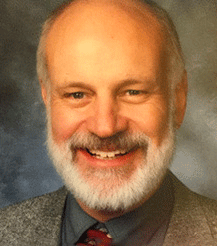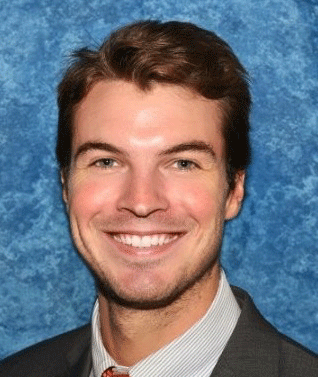The following story appeared in the December 16 Idaho Catholic Register.

For many families, differing beliefs about religion, politics or values can turn festivities into heated arguments and painful words. Sometimes tense situations are exacerbated by past hurt and trauma common to many families.
By Emily Woodham
Staff Writer
Families spread out hundreds of miles across the state or country over most the year come together during the holidays, suddenly only arms-length apart although perhaps still miles apart philosophically or politically. With that, hopes for holidays filled with peace and joy and love and laughter, sometimes fall apart.
For many families, differing beliefs about religion, politics or values can turn festivities into heated arguments and painful words. Sometimes tense situations are exacerbated by past hurt and trauma common to many families.
All this can lead to the question, “Is it worth going home for the holidays?”
Jay Wonacott, director of marriage and family life for the Diocese of Boise, believes it is.
“The family is all about love,” Wonacott said, referring to St. Pope John Paul II’s 1981exhortation Familiaris Consortio (“On the Role of the Christian Family in the Modern World”). The document describes the family as the “first school” of humanity and that “the future of humanity passes by way of the family.”
Ideally, the family is that institution that “is a living reflection of and a real sharing in God’s love for humanity and the love of Christ the Lord for the Church and His bride,” Wonacott said.
However, it is a truism that most families fall well short of this lofty standard. Thus, it is a worthwhile exercise in advance of family get-togethers happen to reflect on our personal expectations, said Dr. Joe Lipetzky, Psy.D., a Catholic mental health provider at Cornerstone Psychological Associates.
“Many privately hold a whimsical view of what family is: always happy and cheerful, always protecting each other and never hurting each other, and filled with loving conversation without ever an argument. A real family is quite the opposite,” Lipetzky said.
Most all families experience the “lowest lows,” sometimes showing the worst side of themselves, he said. “But they can also work together through the issues and come out on the other side of it loving each other and understanding each other on a much deeper level than ever before.”
Familial love can be elevated to agape love
It is sometimes a challenging task for families to live up to the ideal, Wonacott points out. He refers to the C.S. Lewis classic, “The Four Loves,” where Lewis defines familial love (in the Greek, storge meaning “affection”) as a love that is not chosen freely. Instead, it is something into which we are born.
Dr. Joe Lipetzky and Matthew Peck
“It is the most welcoming and frustrating of loves,” Wonacott said. It many ways, love among family members mirrors the unconditional or (agape) love of God, because by nature of our familial relationship, the love is there. However, the familial love can be elevated by agape love, Christ’s love, which can then “drive us to love better,” Wonacott said.
Matthew Peck, also a Catholic mental health provider at Cornerstone Psychological Associates, said the marriage relationship needs to be the first priority, above extended family relationships, always keeping in mind that marriage is a sacrament that should treated as such.
It is important that before events with extended family that spouses communicate expectations, Peck said. “The number one way extended family can harm a marriage is when the couple is found unprepared and not on the same page,” he said. “Communicate with your spouse your thoughts and feelings around family plans and make sure you both understand each other and feel supported by one another.”
The next priority after marriage are the couple’s children. To help prepare children for visits with extended family, Dr. Joe Lipetzky said it is important for parents to state that they are going to be the best versions of themselves, encouraging the kids to do the same. It can be helpful for parents to say, “We’re loving, and we’re going to be loving and be Christ-like for them. We want to treat them like we want to be treated.”
This attitude shifts the focus from assuming the negative about each family member to trying to see the good intentions of everyone involved, he said.
For older children who recognize the stresses that can come from family members with different views, parents should emphasize, “We aren’t going to fix them, and we don’t want to be fixed by them,” Dr. Lipetzky said.
Children should also be reminded that if they are feeling stressed by a situation, that they come to their parents to talk about it. Giving children a code word to use when they are feeling overwhelmed can help them communicate more easily.
When kids feel overwhelmed, it is important for parents to remove them from the situation, whether on a walk or to a different room, and to let them express their thoughts and feelings. “Parents need to listen and validate; just give them listening and understanding. When somebody feels heard, they calm down. This is natural, and it is a bonding process.”
Don’t let one person spoil the whole party
If there is historical conflict with an extended family member, it is important not to let that one person spoil the opportunity to see loved ones, Peck said.
One can think ahead and strategize of how best to cope with a difficult person, he said. Part of that strategizing may include setting boundaries and stepping away if those boundaries are threatened. Another option is to ask a spouse or another third party to help keep interactions in check.
Some introspection may also be necessary, Peck recommends. Before focusing on how a family member needs to change, it may be best to ask oneself, “What can I do? How do I need to change? How can I show kindness and charity in order to bring peace and harmony into this family?”
During interactions, it can be helpful to keep in mind what Peck defines as three zones of stress, which he places on a scale of zero to 10. From zero to five, are normal feelings that can be easily managed. The next zone of stress – 5 to 7 – it can be helpful to divert attention by switching topics or moving to a different conversation or activity.
For the more extreme level of feeling overwhelmed by a situation, taking a walk or finding another way to remove oneself from a situation may be necessary.
In those rare situations when things become too tense and cannot be resolved with changing the topic or activity, then it is time for families to leave in as polite a manner as possible.
A Christian should always be ready to take the “high road.” A Christian does not always have to have the final word or always be “right.” A holiday meal is not going to be the time to solve the world’s problems or theological and political disputes. Holiday meals are not a time to bring up past hurts with those we love.
For the Christian, a family get-together is a perfect opportunity to set the example of that agape love to which St. Paul alludes – a love that is patient and kind, not jealous, pompous, inflated or rude. “It is not rude, it does not seek its own interests, it is not quick-tempered, it does not brood over injury.” (1 Cor. 13:5)
Christians, by nature, should always look for the best in others, particularly in those we love.
St. Paul also wrote, “Therefore, encourage one another and build one another up.” (1 Thess. 5:11)
If you enjoyed this story and would like to read more like it, please consider buying a subscription to the Idaho Catholic Register. Your $20 yearly subscription also supports the work of the Diocese of Boise Communications Department, which includes not only the newspaper, but this website, social media posts and videos. You can subscribe here, or through your parish, or send a check to 1501 S. Federal Way, Boise, ID, 83705: or call 208-350-7554 to leave a credit card payment. Thank you, and God bless you.



Comments